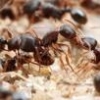Hello all. Lately i've had a lot of questions from my GAN customers about hibernation.
They have questions like
"Were should i hibernate them? I don't want to put them in my fridge, or buy a separate chiller for them."
"Do i even have to hibernate them? I find ants in my house all winter, do they hibernate?"
Also, a buddy of mine told me that Tetramorium stays kind of active during the winter months, is this true?
And lastly, i too find carpenter ants in my house on occasion over the winter. Is this colony not hibernating?
Thank you guys
Loops



















